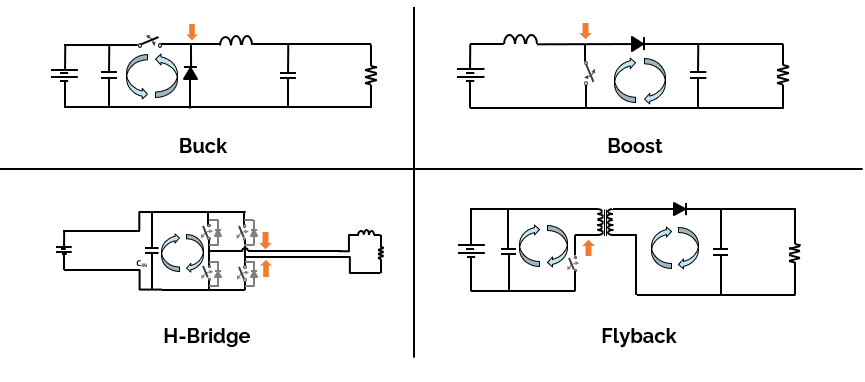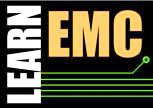EMC Question of the Week: January 23, 2023

Which power circuit topology is generally used when it is necessary to isolate the input current-return from the output current-return?
- Buck
- Boost
- H-Bridge
- Flyback
Answer
The best answer is “d.” Of the four power circuit topologies listed, the flyback is the only one that employs a transformer. This makes it easy to isolate the input power currents from the output power currents. This isolation is often important for safety reasons when either the input or the output is a voltage higher than 50 volts.
 Many circuit boards use buck converters to step-down a DC supply voltage, or boost converters to step-up a DC voltage. These converter topologies are small and typically inexpensive, but they do not isolate the input current-return from the output current-return. H-Bridge topologies, which are commonly used in DC-to-AC converters, also do not inherently isolate the input and output.
Many circuit boards use buck converters to step-down a DC supply voltage, or boost converters to step-up a DC voltage. These converter topologies are small and typically inexpensive, but they do not isolate the input current-return from the output current-return. H-Bridge topologies, which are commonly used in DC-to-AC converters, also do not inherently isolate the input and output.
Variants of the flyback topology, such as forward and active clamp topologies, can also provide DC isolation. From an EMC design standpoint, these topologies generally look like combinations of two or more of the four topologies listed above. The same principles used to identify the critical switching current loops and switching voltage nodes in these basic topologies can be applied to more complex designs.
Have a comment or question regarding this solution? We'd like to hear from you. Email us at
